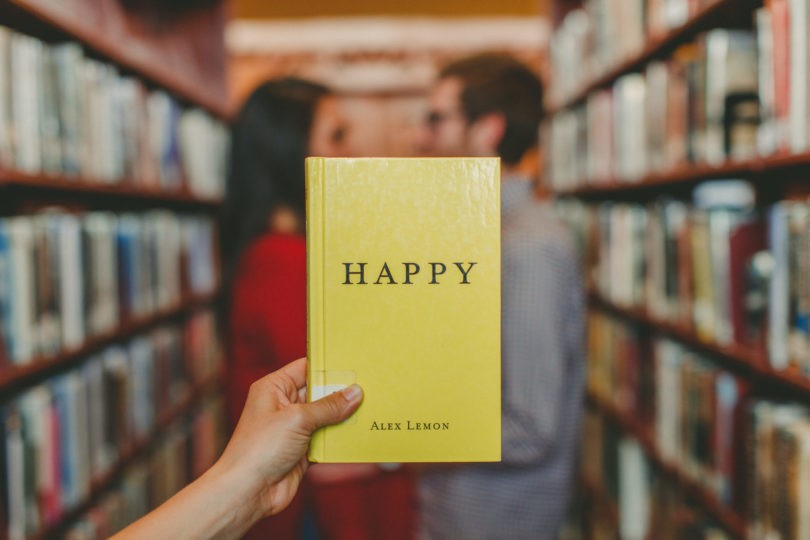
Published by Elephant Journal
A journey of self-discovery is also one of self-enquiry, so the more information we gather on ourselves, the clearer we become. When we are looking for a partner, we ask everything about them: from their likes to their dislikes.
We want to know every little detail; what excites them, what puts a smile on their face, what makes them tick.We become curious about the books they read and the movies they watch; we crave to become aquainted with everything that makes them who they are.
However, when it comes to ourselves, we presume we know it all, without dedicating enough time and effort to research ourselves. We allow the world to judge us, give us titles and names that don’t apply to our true selves. We end up being tagged and put into a compartment that isolates us for many years and stops us from finding what our true aspirations are.
What were we like when we were growing up?
What interests or practices do we completely lose ourselves in?
What are our strengths and weaknesses? And most importantly what are our aspirations—How do we imagine our lives to be?
Often, the quickest way to get to know ourselves is when we face a traumatic situation, or when our backs are against the wall, or when we are thrown in at the deep end at a new job. Our ego is cast aside as we need to learn quickly about ourselves and handle the emergency on hand.
However, most of the time that’s not the case, and we need to be proactive and stir the pot to start discovering who we truly are by simply asking meaningful questions about ourselves.
“Know Thyself” was inscribed in the temple of Apollo at Delphi, almost three thousand years ago. The wisdom of those two words still speaks loudly today.
I’ve found that when we take some time off, preferably for a few days to sit alone and analyse ourselves as we would on any other subject, we get to know a lot about ourselves and kick-start an adventure of self-discovery that lasts a lifetime.
These are some tests and questions to start the process:
1) Do a Personality test.
The Myers-Brigg test is not the only way to analyse our personality, but it’s been used extensively in the corporate world for almost fifty years now and gives us a fair idea of who we truly are.
There are many variations and sites, but I’ve found the 16personalites.com to be a good one.
It wasn’t until much later in my life that I did the Myers-Brigg personality test and found out I was an INTJ–an introverted thinker who needs a lot of time alone to be able to recharge my batteries.
That was in complete contrast to how I was living, and it banished the thought that I was weird and different to others, and I finally understood why I craved solitude, even though I could be quite extroverted in small doses.
2) What are our strengths?
Positive Psychology has dominated our lives for the last few decades, and it’s simply the study of what makes us happy and the activities that we can do more off to infuse that spark in our lives.
Martin Seligman is the founding father of Positive Psychology and his insistence on finding our strengths and maximizing them has supported the self-help field that is so prevalent today.We need to discover our strengths and try to find ways to activate them in our lives and contrastingly not to focus on our weaknesses but just manage them.We need not glorify our weaknesses.
His now famous VIA signature strengths test has been completed by millions.
My top strength turned out to be my love of learning, and it explains why I’m happy to be continually learning even in my mid-forties. My second strength was the curiosity I have for the world which validates my longing to travel and to understand everything the world has to offer. My third strength is wisdom, which comes as no surprise since my first existential questions started when I was ten.
3) What are our core values?
Values are core beliefs that we have developed over the years. They are the ethics that we feel so strongly about and the points of view that we find ourselves arguing for in conversations. They are what drive us from the minute we open our eyes, till the moment we sleep.
Our beliefs are often complicated by our upbringing, society, and the effect that the media has on us, and as such we need to dig deep and find what truly are our values. We should avoid the ones that would make us fit in with our peer group and rather choose what is authentic to us.
I’ve found the short E-book, Aligning with your core values by Tim Brownson to be very useful in identifying my values.
I’m very clear on mine after years of defining them by learning and looking out for what I feel strongly about. My values include self- control, growth, freedom, wisdom, inner peace, creativity and authenticity.
4) Who do you look up to? Who are your mentors? Who inspires you?
I appreciate social entrepreneurship and what it offers to the world because it covers most of my values. And as such I’m always inspired by people who create ingenious ideas to give back to our society.
Muhammad Yunus, founder of Grameen Bank also won the 2006 Nobel Prize for his efforts in providing microcredit loans to those in need to help them develop financial self-sufficiency in poor developing countries like his home country Bangladesh.
I also admire my late grandfather who would act like a modern day Robin Hood by asking for money from the wealthy and then buying essential foods, and personally delivering to all the poor and homeless in Tyre, Lebanon. He wore the same clothes, drove a very old car and continued doing what he did well into his eighties.
5). What makes you happiest in your life? What excites you? What do you do that makes you feel invincible?
When I’m sitting alone, and I’m writing a poem or prose, it comes naturally and deep from my heart, and I know my words will touch many hearts, that is when I’m at my happiest.
I believe in the power of words and the effect they can have on inspiring people and when I see people inspired to change and to claim their authenticity then that makes me feel invincible.
6) What careers do you find yourself dreaming of?
I dream of impacting the world with my writing the way Rumi, Kahlil Gibran, and Ernest Hemingway have. Their words touch people’s hearts and are immortal, affecting generation after generation. Their writings and words are a pathway to reach our souls, and that’s the path I want to be in all my life.
7) If you were able to be a member of the audience at your own funeral (in 100 years or so) what would you want to hear people say?
I want people to say that I’ve inspired many to find their rightful paths—their long road back to their hidden inner beings. I want to be remembered for leading the authenticity revolution amidst the clamor and noise for living other people’s lives and values.
I want to be known for waking people up to the simple fact that it’s not always about the money, the success and accumulations of possessions and achievements. Rather in the words of Abraham Maslow, I want everyone to “become who they must be.”



 Published By
Published By 
